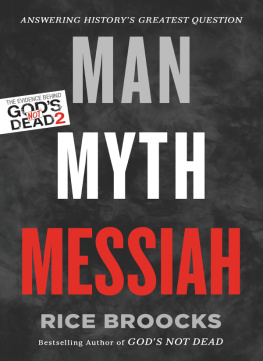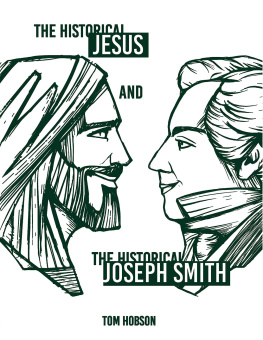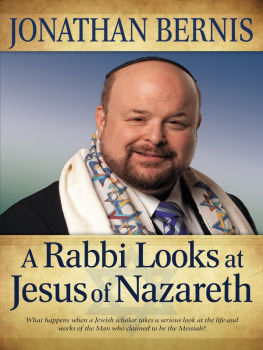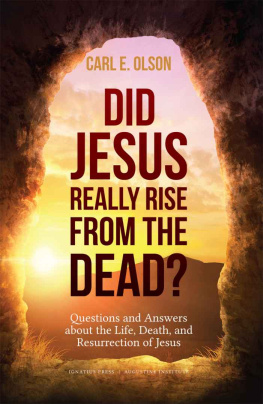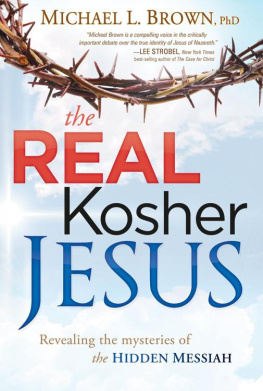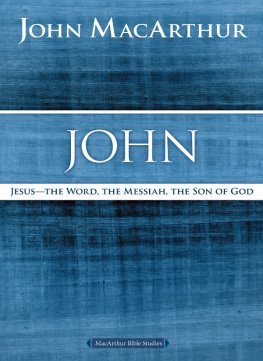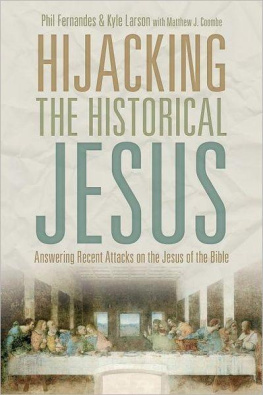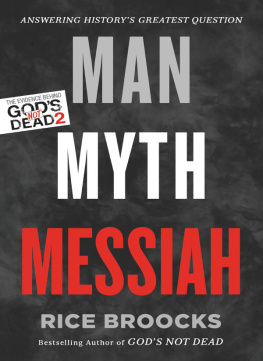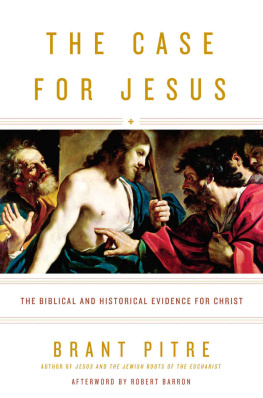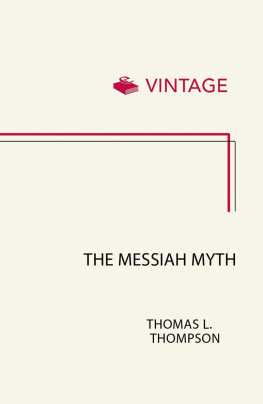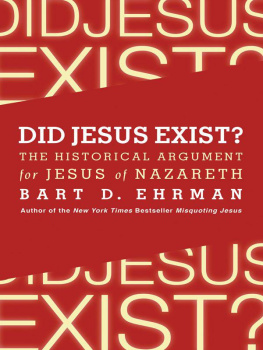FROM POPULAR CULTURE TO NEW TESTAMENT CIRCLES in particular, the topic of the historical Jesus is arguably the most prominent subject at the present time. It has been that way for at least two or three decades as well. Since at least the 1980s, scholars have been engaged in what has been dubbed as the Third Quest for the Historical Jesus, beginning with the initial German movement back in the nineteenth century.
Into this contemporary milieu steps Dr. Rice Broocks, having penned his volume, Man, Myth, Messiah: Answering Historys Greatest Question. It acquaints readers with a popular overview of some key questions and issues from the current interest in linking Jesus Christ to history. Yet this text doesnt spare or shy away from sharing some of the scholarly ideas and key quotations that frame the present discussions.
In order to achieve this sort of task, Dr. Broocks endeavors to start with basic principles, moving up to more involved issues. In the process, many of the chief questions, topics, and state-of-the-art approaches are introduced and addressed.
All of this combines to make this volume a valuable guide to contemporary studies. It is also a manual of additional data that can assist with addressing the big questions that consistently gather around this subject.
As the author of this work, Dr. Broocks brings a unique combination of traits to this project. He is a pastor of a thriving multi-ethnic congregation in the Nashville Tennessee area, with a worldwide ministry beyond that, reaching out primarily to university students; with many other books, as well as a research doctorate from Fuller Seminary, to his credit. But having said that, Rice has an insatiable drive to help build Gods kingdom. Evangelism is his heartbeat. Unlike many in his profession, he realizes that such can only be built on a foundation of knowledge. Thus, there is no substitute for established truth that exudes into purposeful action. A dearth in either area can be disastrous for Christian ministry. Thats why this is the second time that one of his books has been the basis for a full-length movie!
For reasons such as these, Dr. Broocks builds a Christian foundation from which we can then launch out into action in the world. That is obvious when, in the first three chapters, he introduces the topics of history, the Minimal Facts Method, and the reliability of Scripture. The next three chapters present some of the historical basis for Jesus crucifixion and resurrection, along with His uniqueness. The two subjects after that are devoted to Jesus deity and the reality of the supernatural world.
Only after laying this foundation does he move to the believers need to engage in both discipleship and evangelism. As mentioned, good foundations provide the launching grounds for moving into sound practical action. But then it was the same way in the New Testament too.
For just one or two examples among the many that could be cited here, Paul stated that when he preached to the Corinthians, he first presented the gospel message. When the factual side of the gospel was defined in the New Testament, the deity of Christ, along with his death and resurrection, was named. Then after laying out this foundation, the apostle encouraged a commitment to Jesus Christ (1 Corinthians 15:12). Likewise, when Peter preached his first Pentecost sermon, which started the church, he also laid out the historical gospel foundation before he led into the practical message of evangelism (Acts 2:2241).
This is the approach taken in this book, as Dr. Broocks also develops the groundwork before explaining Gods remedy. He is a qualified leader in these areas, and he has a heart for doing so as well. In chapter 2, for instance, he shows how the minimal historical foundation of Christianity is so strong that skeptical scholars even accept its bedrock truths. Since this is the case, why wouldnt someone take the next step and believe?
For reasons such as these, I highly recommend this volume to you as a way to answer tough questions, ground the proclamation of the gospel message, and be prepared to share these truths with others, all from one text. Dr. Broocks is a capable guide to bring us safely to our destination. There is no greater message in life than that the gospel proclamation is true, that it answers our deepest needs and questions, along with the incredible benefit of eternal life to all who believe.
GARY R. HABERMAS, PHD DISTINGUISHED PROFESSOR AND CHAIR, DEPARTMENT OF PHILOSOPHY AND THEOLOGY, LIBERTY UNIVERSITY
I BROKE THE UNWRITTEN CODE RECENTLY AND PICKED up a magazine while standing in the checkout line of the grocery store. I couldnt resist seeing what Newsweek had to say about Jesus Christ in its feature titled The 100 People Who Shaped Our World. I should have known that it wouldnt be good. It was predictably written from a skeptical perspective with little pretense to try to hide the bias. It seems you are expected to be respectful in what you say about any other religion or revered religious figureexcept Jesus Christ. Mysteriously, people feel the liberty to malign, disfigure, and reimagine Him as they choose. In this rather brief attempt at a summation of His life and impact, the article communicated the typical notion that we are really unable to know much about Jesus historically.
The impact of Jesus of Nazareth, the itinerant preacher whose teachings became the basis of one of the worlds most practiced religions, is irrefutable. But the nature of the man has been debated time and time again as we view him through the lenses of scholars moving ever further away from the time period in which Jesus lived.
What was fairly shocking was the referral at the end of the article to a book by sociologist Reza Aslan for those who wanted to learn more about Jesus. Of all the authors and books by Christian theologians Newsweek could have referenced, it pointed the reader to a Muslim who doesnt believe the Gospels are reliable and denies Jesus being the Son of God. Im not saying a Muslim cant write about Jesus Christ; its just that, at least, someone who could give a Christian perspective should have been referenced. So much for fair and balanced journalism.
This seems par for the course when it comes to the majority of portrayals of Jesus Christ in the secular media. Consistent historical methodology is kicked to the curb in favor of pushing the narrative of skepticism. What is also on display is the strange tendency, when it comes to writing about Jesus, to be disqualified from being referenced as a credible spokesperson if you call yourself a Christian. I cant think of any other area or issue where this would not be seen as unreasonable. Thats like saying if youre an American you cant be trusted to talk authoritatively about the true facts of American history.
This type of consistently slanted presentation has contributed to the dramatic shift in the religious beliefs of those in the United Statesespecially those under thirty. This phenomenon has been labeled the rise of the nones, specifically those that claim no religious affiliation. Pew Research Center states, As a rising cohort of highly unaffiliated Millennials reaches adulthood, the median age of unaffiliated adults has dropped to 36, down from 38 in 2007 and far lower than the general (adult) populations median age of 46.
Though the numbers are not as grim as some would have us believe, this trend is not something to ignore. There has definitely been an erosion of confidence in the credibility of the Christian faithparticularly among young people. At the heart of this crisis is one question that must be answered clearly in order to stop this downward pattern: Is the Christian story true?
Motivated by this alarming statistical data, I wrote the book Gods Not Dead: Evidence for God in an Age of Uncertainty
Next page
